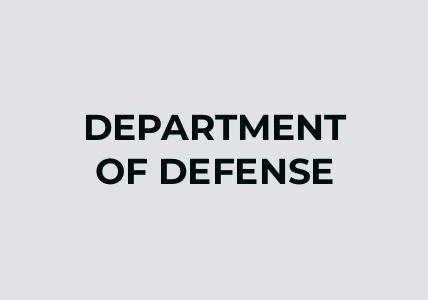Three Ways Shark Week Mirrors Cybersecurity Marketing
This weekend wrapped up Discovery Channel’s Shark Week, which has aired since 1988. What began as informative entertainment has turned into a spectacle, and nowadays you’re just as likely to read misinformation about Shark Week as you are to read about its function promoting conversation around these beautiful creatures.
A similar phenomena is unfolding within cybersecurity. As it has dominated headlines in recent months, the discussion around cybersecurity has also been watered down. Open your inbox, or a blog, or a new webinar and you’ll see references to the latest ransomware attack, often laced with misinformation and critical misunderstandings.
Since shark conservation is a passion of mine, I thought we could have a little fun comparing Shark Week and cybersecurity marketing. Here are three ways that myths are spread by Shark Week and how they are analogous to the myths currently percolating in cybersecurity marketing.
1. Fear Tactics
Shark Week was designed with the intent to educate the public and help alleviate concerns about sharks. Over time, producers started leveraging eye-catching, clickbait titles such as “Rogue Tiger Shark” and “Jaws Awakens: Phred vs. Slash” to draw viewers in. This fear tactic echoes similar language used in cybersecurity and ransomware marketing materials that warns “without us you will get breached.”
The reality is that sharks are misunderstood creatures that got a bad reputation from the 1975 nightmare-fueling drama, “Jaws.” The choice to frame them as vicious predators, rather than celebrate them in terms of their amazing biodiversity, is a marketing calculation. For cybersecurity, marketers often make a similar choice to heighten businesses’ anxieties around getting breached at the expense of more transparently educating consumers about the broader nuance of the cyber landscape.
2. Over-Promotion
Marketers face a challenge in which their own advertising efforts may eventually change the conditions under which they are advertising. For Shark Week, what was initially an awareness campaign for an exotic animal morphed into a media sensation, with every company trying to be part of the story — like this blog — with everything from social media ads to merchandise from every vendor and even a rival shark lineup with National Geographic’s SharkFest.
Likewise, the recent promotion of cybersecurity attacks has accelerated to a fever pitch of marketing noise that has changed the way we talk within the cyber community. Common terms, from “ransomware” to “firewall,” have been capitalized on by marketing such that they’ve lost their precision within the field itself. There is so much noise around an attack that that the security professionals that we are supposed to be sharing information with start tuning us out, or even rejecting vendors for their negative portrayals.
3. Bringing Awareness to Key Issues
For years it was understood in the cyber world that the key issues in security were not talked about enough given their severity. Shark Week supporters similarly claim that despite the fear-based media attention, the program ultimately drives awareness for key issues like shark finning and other exploitative practices.
These points are half true. Marketing cybersecurity has certainly given the overall topic more voice, and the average person likely has greater awareness of cyber risks now than they did two years ago. But in the same way that Shark Week at times raises awareness for shark protection, since the awareness is muddied by vague and misleading facts, it becomes counterproductive and often obscures the very issues marketers claim to clarify.
While marketing professionals are ultimately tasked to bring in revenue, we should be looking for a way to do that without tarnishing the purity of the message. By resorting to fear tactics and “ambulance-chasing” to prompt engagement, and then exploiting that engagement with over-promotion, marketers undermine their goals to raise awareness in favor of diluted, sometimes dangerously misrepresented facts.
Humans are much more dangerous to sharks than vice versa, but you wouldn’t know that from Shark Week. Cybersecurity is more than the latest packet of media jargon, but I’m afraid many people don’t know that either. Moving forward, it is critical that marketing professionals better understand the responsibility they have to educate the world on the seriousness of cybersecurity while avoiding clickbait scare tactics that only muddy the waters.
Featured Webinars
Hear from our experts on the latest trends and best practices to optimize your network visibility and analysis.

CONTINUE THE DISCUSSION
People are talking about this in the Gigamon Community’s Security group.
Share your thoughts today








 Lorene Ryal
Lorene Ryal